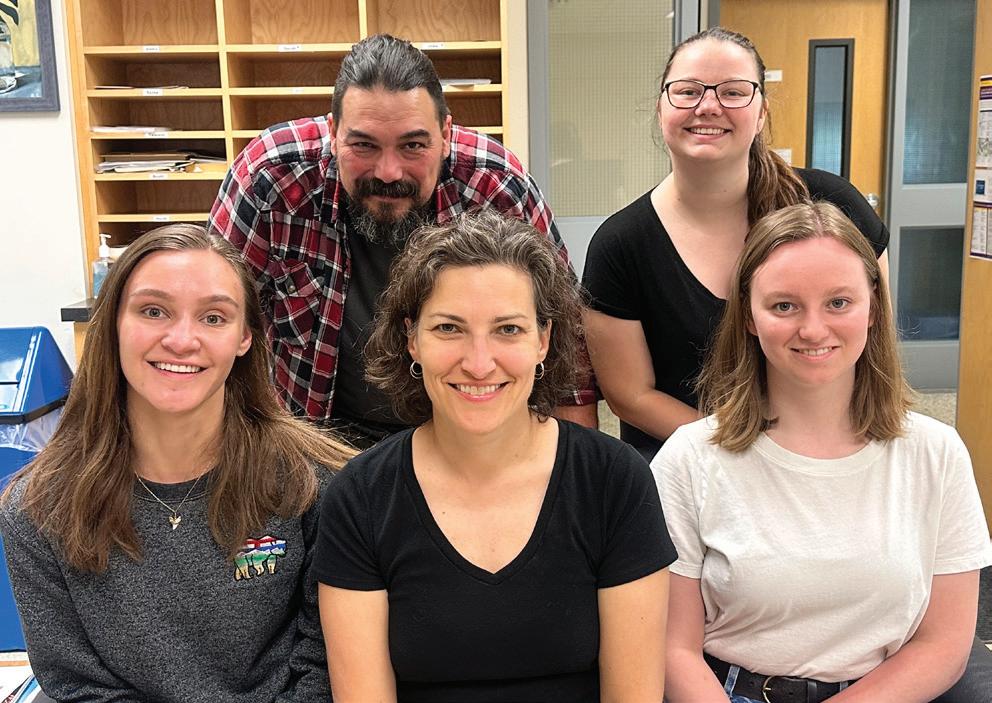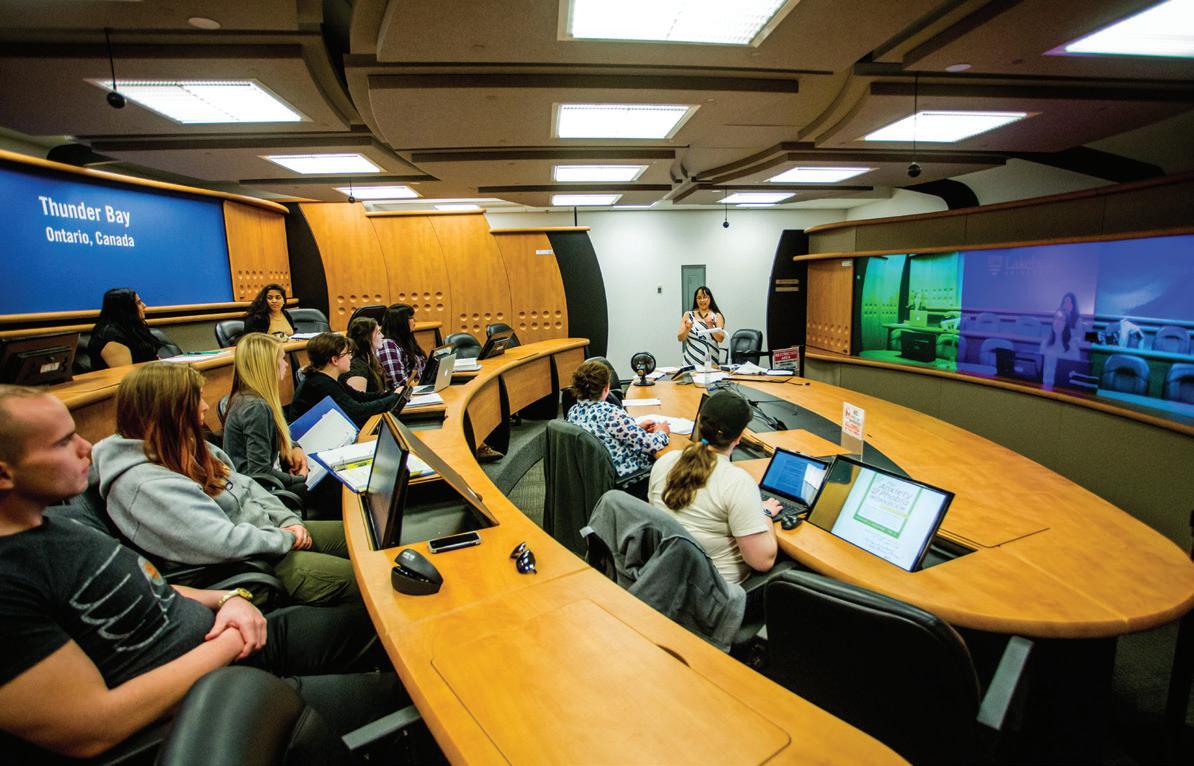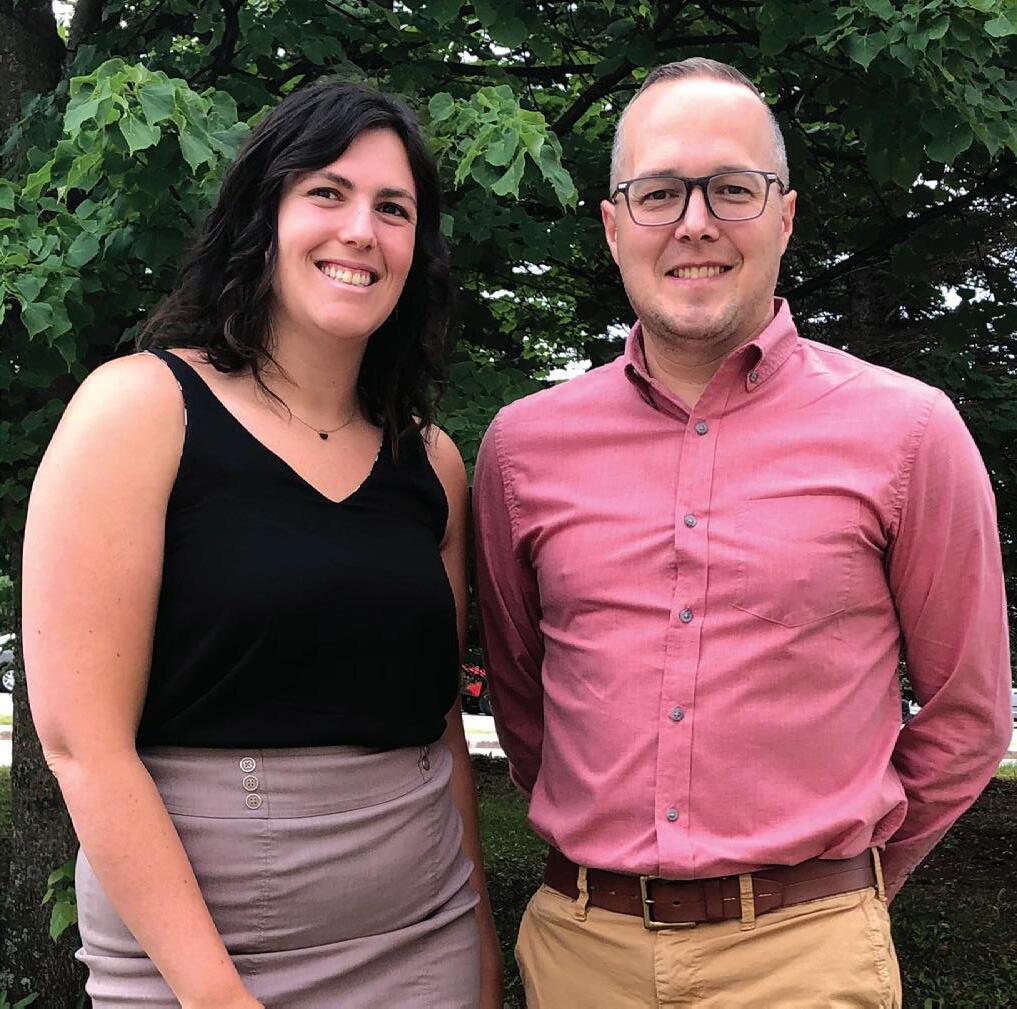
3 minute read
FACULTY RESEARCH PROFILE: DR. JESSICA METCALFE
“An animal’s tissues retain a kind of isotopic ‘signature’ which is recoverable hundreds or even thousands of years after the animal dies” says Dr. Jessica Metcalfe, Assistant Professor in the Department of Anthropology. Trained in anthropology and environmental science, Dr. Metcalfe’s research has always been interdisciplinary. Specializing in stable isotope analysis, she applies biogeochemical techniques to a range of research questions related to large mammal ecology, paleoenvironmental reconstruction, and human-animalenvironment interactions. In her lab work, Dr. Metcalfe and her team “take modern or ancient animal remains (bone, tooth, hair, hide, etc.) and determine their isotopic compositions to find out about what the animal ate, what kind of environment it lived in, and where it moved on the landscape.” Inspired as a student by archeologists engaged in community-based collaborative work, Dr. Metcalfe’s SSHRC-funded research project collaborates with Tsattine (Beaver) people of northwestern Alberta, providing support for their cultural revitalization efforts. This work focuses on Tsattine bison hunting, and is committed to “studying the past in order to work towards justice in the present.”
Graduate students are central to Dr. Metcalfe’s research. For her, “willingness to learn, reliability, and curiosity are the most important characteristics for an effective researcher.” She facilitates a space for social connection and mentorship, advocating for “hands-on experience” in the lab. As she says, “grad students need to focus on working hard and finishing on time, but they also need to seek balance in their lives and recognize when unique opportunities arise that might benefit them personally and professionally… and to say yes to those opportunities.”
FAQs
WHAT ARE RESEARCH CENTRES OR INSTITUTES?
Imagine a space that brings together students, faculty members, members of the community and/or industry, all with a common goal: to research and study a specific area of inquiry. Research Centres and Institutes allow researchers at all levels to connect, share their expertise, and work together on mutual interests. The teams often include researchers from different disciplines; more established faculty members mentor junior faculty members, postdoctoral fellows, interns, and students.

WHAT OPPORTUNITIES ARE AVAILABLE FOR GRADUATE STUDENTS?
Research Centres and Institutes can offer employment opportunities to graduate students, as well as research opportunities. To complement and enhance students’ academic work, graduate students may have the opportunity to work on a faculty member’s or research team’s project. Students who choose to get involved in Research Centres or Institutes will meet junior and senior researchers in their fields of study, be included in partnerships with community members or organizations, and gain exposure and hands-on experience beyond the classroom.
HOW CAN I GET INVOLVED?
If you are interested in a particular field or would like to know about opportunities in a Research Centre or Institute, visit the Research and Innovation website: www.lakeheadu.ca/research-and-innovation/facilities-centres There you will find the list of Research Centres and Institutes, and the faculty members who are associated with a Centre or Institute are listed on the respective websites. During your studies, you may wish to contact one of these professors to see if there are research projects or opportunities at the Centre or Institute that would be of interest to you. Also, most Centres and Institutes have public talks and events, and students are especially welcomed. Attending these is a great way to interact with members of the Centre or Institute, meet other graduate students, and learn more about current projects.
Discovery Through Collaboration
CENTRE FOR RESEARCH ON SAFE DRIVING (CRSD)
The mandate of the Centre is to contribute to the reduction of traffic-related crashes through the understanding of the fundamental processes that support safe driving and through the development of interventions to optimize safe driving.
Dr. Michel Bédard, Director e: michel.bedard@lakeheadu.ca t: (807) 343-8010 Ext 8630
CENTRE FOR RURAL & NORTHERN HEALTH RESEARCH (CRaNHR)
The Centre provides high level quantitative and qualitative research into determinants of rural and northern health, and conducts evaluative research on health services, programs and policies for provincial and federal agencies, health care organizations, and Indigenous communities.

Dr. Christopher Mushquash, Director e: cjmushqu@lakeheadu.ca t: (807) 343-8010 Ext 8239
Dr. Mary Ellen Hill, Senior Researcher e: maryellen.hill@lakeheadu.ca t: (807) 343-8010 Ext 7278
RESEARCH CENTRE FOR SUSTAINABLE COMMUNITIES (RCSC)
The aim of RCSC is the development of an improved understanding of factors that influence the sustainability of communities using an innovative, comprehensive, and focused approach through the lenses of the social and natural sciences, the humanities, and fine arts.
Dr. Nandakumar Kanavillil, Director e: nkanavil@lakeheadu.ca t: (705) 330-4008 Ext 2633
Lakehead Social History Institute
The Lakehead Social History Institute is a partnership of historical researchers at Lakehead University and in the Thunder Bay community with the aim to encourage and promote historical research and training.
Beverly Soloway, Director e: shi@lakeheadu.ca t: (807) 343-8010 Ext 8852
GREEN PROCESSES RESEARCH CENTRE (GPRC)
GPRC is a hub for local and international researchers working on cutting-edge green technologies that will develop new products with the aim of transforming Canadian industries to adopt new sustainable processes with green products that will protect the environment.
Dr. Pedram Fatehi, Director e: pfatehi@lakeheadu.ca t: (807) 343-8010 Ext 8697
ENHANCING THE PREVENTION OF INJURY & DISABILITY @ WORK (EPID@WORK) RESEARCH INSTITUTE
The mandate of the EPID@Work Research Institute is to bring people together to reduce impacts of work-related injury and work disability through collaborative applied research and provision of education to enhance knowledge related to injury and disability. Information generated from our research will inform practice and policies aiming to improve health and social outcomes in Northwestern Ontario and beyond.
Dr. Vicki Kristman, Director
e:
epid.hbsc@lakeheadu.ca
t: (807) 343-8010 Ext 7165










